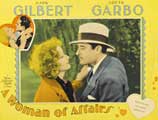
I thought it might be jolly to pen the occasional blog looking in a little more detail at the lives of Capuchin authors. The man behind our second best-selling title -
Michael Arlen and
The Green Hat respectively - launches this initiative.
Arlen was born Dikran Kouyoumdjian in Bulgaria, to Armenian parents, in 1895, but established his reputation in England during the 1920s. His works were first published in magazines and took the form of essays, book reviews, personal essays, short stories, and a play. Arlen moved into the romance genre, to which he added the spices of psychology, the supernatural and horror, culminating in a defining book of short stories called
These Charming People (which we published last year).
All this work coalesced into
The Green Hat, which, with its (then) racy story and brilliant description of its times, propelled him to instant fame and fortune. The book became a broadway play and was filmed twice, as
A Woman of Affairs and
Outcast Lady. The former was a silent film starring Greta Garbo, and deliberately understated or avoided altogether what were considered the highly charged subjects of the book, this reticence also motivating the change of name.
In subsequent work, Arlen again experimented with different genres and fantastic themes, producing a dystopian novel and an adventuring detective - Gay Falcon - who became the subject of several mystery films. He never, however, recaptured the peak of success attained by
The Green Hat.
The various phases and locations of Arlen's life and career brought him into contact with many notable figures, including Aldous Huxley, D.H. Lawrence, Nancy Cunard and Countess Atalanta Mercati, who he married. Having had his loyalty to Britain questioned in the House of Commons (due to his Bulgarian nationality and the complications arising therefrom), Arlen moved to New York in 1946, where he died ten years later.
David
 Rachel Cooke selected the 10 'best neglected literary classics' for a feature in The Observer yesterday. We at Capuchin Towers were delighted to note that not only did she crown this pantheon with The Real Charlotte, which will emerge as a new Capuchin next month, but that she also selected a title by Barbara Comyns, whose Juniper Tree we are publishing in October.
Rachel Cooke selected the 10 'best neglected literary classics' for a feature in The Observer yesterday. We at Capuchin Towers were delighted to note that not only did she crown this pantheon with The Real Charlotte, which will emerge as a new Capuchin next month, but that she also selected a title by Barbara Comyns, whose Juniper Tree we are publishing in October.






